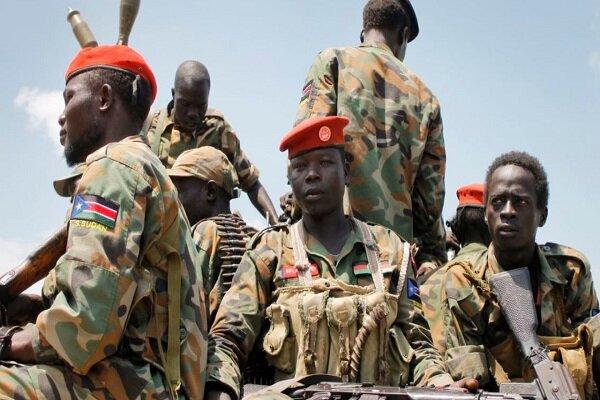Jafar Qannadbashi told the Strategic Council on Foreign Relations, referring to the recent unrest in Sudan, which led to the deaths and injuries of a large number of people in this country, that “although some analysts point to some neighboring countries of Sudan as the factors that caused the unrest in this country, and some others consider Saudi Arabia and the Zionist regime to be the main cause of these conflicts, the fact is that the root of this unrest is the difference between two Sudanese generals, namely “Abd al-Fattah al-Barhan” and “Mohammed Hamdan Daghlo” known as “Hamidti” which unexpectedly turned into a widespread and multi-faceted conflict.
He stated that the main reason for the differences was the integration of Sudan’s “quick support forces” or “quick response” in the army and added that the integration of these forces in Sudan had been discussed for a long time and even since the time of Omar al-Bashir, it was said that the mission of the quick response forces was to manage the situation in Darfur has finished, and should be integrated into the military, but they refused to do so all these years.
Reminding that Al-Barhan and Hamidti staged a coup together and removed Omar al-Bashir, and by dissolving the political structure of that time, the military establishment ruled over Sudan, this African affairs analyst explained that this structure had a presidential council, and these two generals were also at the head of that council. However, there were always differences until it was agreed to hand over the government to civilians and political parties. At this stage, the issue of integrating the rapid reaction forces into the army became severe, and it was emphasized that if the government was to be handed over, this should be realized.
Qannadbashi stated that when the conflicts started, Al-Barhan and Hamidti never imagined that these acts of violence would occur on this scale and with this amount of destruction and casualties, and said that these conflicts took place in the main, sensitive, and vital centers of Sudan and due to the population gathering in these centers caused more casualties.
Emphasizing that power-seeking and non-acceptance of conventional rules were the roots of these conflicts, he continued that the current situation in Sudan shows that the political crisis in this country is expanding. Sudan has already experienced the consequences of economic problems and financial corruption, tribal and religious conflicts, and political and social injustice. The situation will become more complicated with the intensification of the political crisis. In this situation, foreign actors are also trying to take advantage of the developments in this country in line with their interests, and we are witnessing the purposeful role-playing and exploitation of the neighbors, Egypt, Saudi Arabia, the UAE, and the Zionists.
This expert on African issues pointed to the initial agreement of the conflicting Sudanese parties with the ceasefire during the Eid al-Fitr holiday. Regarding the prospects of the developments in Sudan, he stated that although the goal of this ceasefire is to create human crossings for civilians to leave, the continuation of these conflicts is not possible for both parties with this scope. Of course, both sides want the natural elimination of the other. But in the field of action, it is impossible to continue the conflict due to the lack of facilities, food, medicine, and people’s problems. Basic infrastructures, including water supply facilities to the people, have been attacked; due to the travel ban, the food production sectors have been closed, creating problems for the people.
Qannadbashi said: “The army also does not have the necessary support, the soldiers are tired, and they can’t continue fighting in a situation where they do not have the necessary fuel and food. Therefore, it seems that even if the conflict does not lead to eliminating one side, it will end quickly, and both sides cannot continue the war due to the lack of facilities”.
Stating that the conflicts in Sudan threaten the stability of this country, he added that Sudan is a vast country, and due to the imposition of some restrictions on the country’s airports due to the conflicts, foreign actors cannot simply send equipment to help the continuation of the war. Intervention in Sudan and deployment of troops are very costly for foreign actors. Even the bombing of one side’s positions by neighboring countries is very expensive and has many consequences; That’s why other countries are not willing to pay such costs.
This analyst of African issues pointed to the geopolitical situation of Sudan and, simultaneously, reminded that the absence of significant oil resources in Sudan has made other countries unwilling to accept significant costs to intervene in its affairs and direct its processes.
Qannadbashi said that “due to the disagreement between the army and the rapid support forces, the national meetings and talks were quickly stopped in Sudan some time ago. Considering the situation of Sudan, in a case where the parties to the conflict are not willing to form a dialogue to reach a specific political process, the international community should play an influential role in creating the ground for discussion and establishing stability in this country.










0 Comments